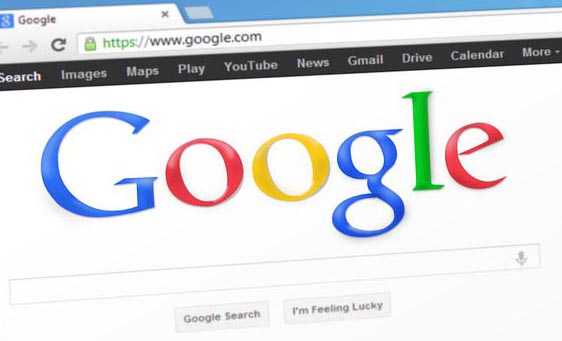Get the best tips here for increasing wesbsite traffic with optimised keywords, meta tags and meta data to help you be first on Google.
Over the coming series of blogs, we will be looking at what SEO is, why your website needs SEO and how to implement an SEO campaign to get to the top of Google search results.
If you are not sure if your website is search engine optimized for Google, you can contact us for your free website audit.

What is SEO?
Search Engine Optimisation (SEO) is the process of getting traffic to your company website by ranking on the first page of Google and other search engines. Obviously, your website needs to work for your customers, but it also needs to be structured in a way that search engines understand so that Google can return the best results for their customers. If Googlebots or Spiders cannot read, understand and index your content, it cannot serve your website to it’s customers.
Why does your website need SEO?
Your website may look great, but without good SEO your website will simply not be found. On average 90% of traffic goes to search results on page one of Google. It is unlikely that you will be able to reach the number one spot but in most cases, appearing on the first page for your search term or keyword is possible.
We have to remember that Google wants to provide users with the most in accurate answer to their search query, as quickly as possible. After all, if it doesn’t they may use a different search engine meaning Google will lose out on vital advertising revenue.

How does Google rank your website?
Google employ a large team of engineers to make sure websites are what they say they are. They create a very complex set of rules (an algorithm) that defines how they serve results to the user. No one (apart from Google) knows the algorithm, however Google do offer insights and information on updates. It makes small algorithm updates almost every day and major updates (such as Google Panda and Google Penguin), which can affect search results significantly.
The most recent being: ‘Mobile-First Index’, which is aimed at improving experience for the rapidly increasing number of mobile users. There is no one size fits all solution for SEO, and you can’t trick Google’s algorithm. If you try, then your website will be penalised.
What affects your website ranking?
There are four key factors, which influence your website ranking.
Crawlability
This means how easily the GoogleBot or Spider can move around your website to index it. Google rewards websites, which make it easier for Bots to crawl. So structure your website to make it simple to crawl and you will be rewarded with a better ranking on Google.
The main factors which affect Crawlability are: Mobile Friendliness, Site Structure, Content, Website Security, Sitemaps and Schema Markup. We will look at each of these in detail.
Mobile Friendliness
Google has recently made announcements that it will use Mobile Friendliness as a ranking signal. The reason for this is that the number of searches on mobile devices has overtaken those on desktop computers.
If your website is not optimised for mobile users and does not function properly you may be peanalised. Websites these days are generally built to be responsive and this means they respond to function properly according to the device being used.
Site Structure
How your website is laid out will improve not only it’s usability for your visitors but more importantly for SEO purposes will make your site easier for Google’s Bots to crawl and index.
Updating & Removing Duplicate Content
Google likes new content, so it makes sense to update your content regularly. The best way to do this is by adding a blog to produce fresh content and link it to your page.
Google will get confused if you produce duplicate content, so take care that everything you produce is unique. There is no point having content just for the sake of it, so make sure everything is useful to your users.
Website Security
Switching your website from http:// to https:// will make a difference to your Google rankings. Google likes secure websites as this gives users confidence.
Submitting Sitemaps
To make sure Google crawls your website, we use sitemaps. A site map contains the URL’s which we want to be indexed. We can also add ‘NoIndex’ meta tags to tell Google we do not want a particular page to be indexed. We can also add ‘NoIndex’ meta tags to tell Google we do not want a particular page to be indexed.
Using Schema Markup
Schema Markup is a code, which explain search of your page elements to Google and other search engines.

Relevance
When we talk about relevance, we mean that we need to make it absolutely clear to Google what each page topic is and how each page links to each other without confusing it by overlapping. The main factors which affect Relevance are: Structured URL’s, Good Title Tags, Keyword Density, Using of Alt Tags for Images, Adding Links to other sites, Subject Relevance.
Using Structured URL’s
A URL (Uniform Resource Locator) is the actual address you see in the top bar of your browser and specifies where on the Internet the page is located or stored. Your URL’S need to be concise and the pages you are trying to rank for should be as close to the root domain as possible. This means that Google can see immediately what your page is about by looking at the URL, it also gives higher credit to pages closer to the root domain.
Good Title Tags
Title Tags are specific pieces of text, which you have specified as Headings & Subheadings. The correct use of Title Tags shows Google how important each piece of content is and which topic it relates to. H1 is is the most important heading on the page followed by H2, H3, H4 and so on, which are subheadings.
Keyword Density
Keyword Density means, the number of times (specified by percentage) a keyword or key phrase appears on your page. It is important that your content is natural and easy to read and not stuffed with keywords for the sake of optimisation as this could lead to a penalty.
Using Alt tags for Images
Although Google’s Robots are extremely clever, they are not yet at a stage where they can read imagery. It is important for SEO that your images are accurately described in your image Alt tags so that Google know what they are. You should also try to ensure that your image file names are the same as the Alt tag for each image. This helps Google when indexing of your webpage.
Adding Links to other sites
Links to other sites are called Outbound Links. They can be used to reference external resources relevant to your topic. Links should be to High Authority websites. Using links helps Google determine the relevance of your page to the topic simply by looking at these links.
Subject or Topic Relevance
Obviously, by now Google should know the topic of your page. But to make your page more relevant to the topic, it is important to build supporting pages relating to similar topics on the overall subject. This enhances your page relevance to the topic and really hammers home to Google that your page has the most comprehensive information available.

Engagement or Interaction
You may not realise it but actually Google monitor user behavior once they have been served search results. So, for example, if a user clicks on a search result then immediately returns to the search results to look for another option, Google will assume that this website has not provided the user with a satisfactory answer to their query and therefore move the website further down the search rankings.
We want to keep users on our site for as long as possible to show Google that our Website is useful. The main factors,which affect Engagement or Interaction, are: Meta Descriptions, Site Speed,Good use of Media, Keeping users on Site, Minimising Pop-ups.
Meta Descriptions
A Meta description is usually around 160 characters long and feature directly underneath your page title in the Google search results page. This is important because this description is what users will read to decide whether or not to click through to your website.
The more clicks you get, the more relevant your website is to the search term, Google see this and moves your web page higher up the rankings for the search term.
Site Speed
Your website will need to load quickly, into days world users will not wait. Your webpage should load in under 5 seconds. If your competitors webpage loads more quickly, they will more likely go there and Google will see their website as better and move you down the rankings.
Good use of Media
Good use of imagery and video is vital to a successful website.You must ensure that you break up text with the correct amount of images to make your articles readable. Providing video content or even audio content will enhance your website authority and keep users reading and interacting with your website.
Keeping Users on Site
Although you want to provide the most in-depth information on your topic, in order to keep people reading, you will need to ensure your content is well structured and readable. Good use of text formatting and Sub-headings will help break your text up to make it more digestible.
Minimise Pop-ups
No-one likes pop-ups, they simply upset users and disrupt their experience. Keeps pop-ups to a minimum and avoid heavy use of advertising on your pages.
Authority
Domain Authority and Page Authority are used by Google to determine your websites trustworthiness within the industry that the keyword relates to. Google makes decisions on your page authority by looking at links to your website and your content quality.
The main factors, which affect Authority, are: Link Building, Content and Social Media.
Link Building
Links from external websites are considered a very important indicator of your websites authority. Building links to your website is hard and takes time, but the more high quality links you have to your website will boost your Google ranking.
Content
Content comes in many formats, Blog Posts,Videos, Images (including info graphics), Case Studies, FAQ and Reviews. It is important to use as many forms as possible to communicate with your user. Doing so will boost your Google ranking.
Social Media
Social Media is one of the less important factors to consider when running an SEO campaign. Yes, you should have social media accounts and there should be links to them from your website and is a good way of improving your website’s link profile. If you are struggling to put together a social media campaign, take a look at our blog on Social Media for Business: https://tygermedia.co.uk/how-can-social-media-work-for-business/
